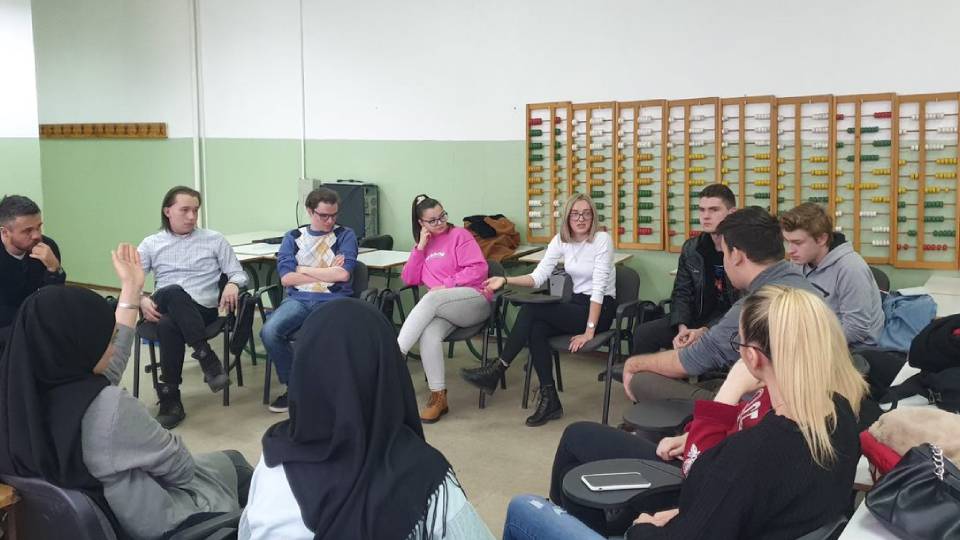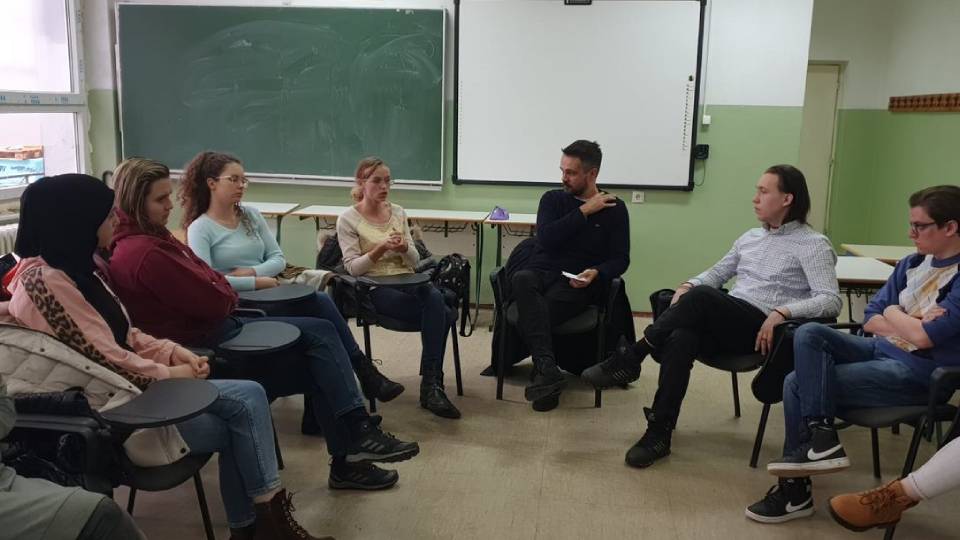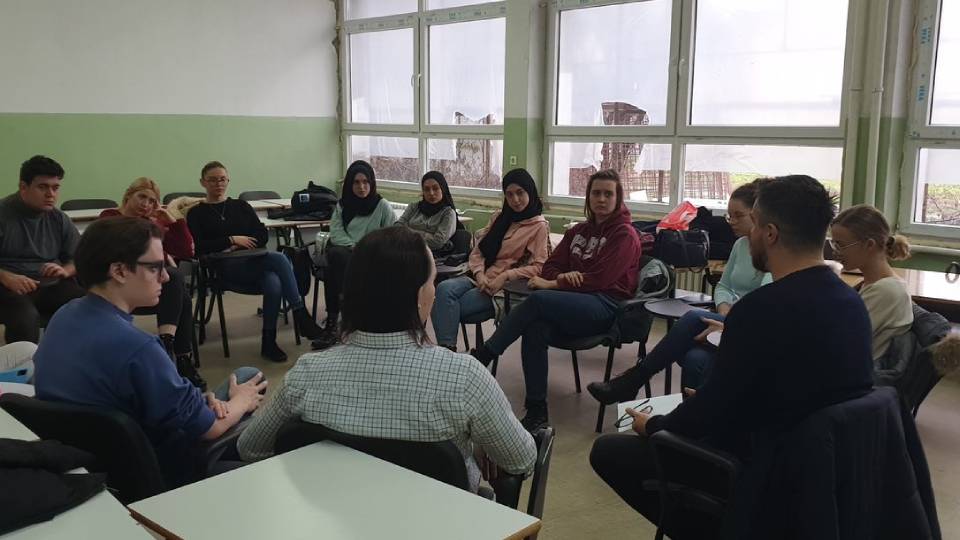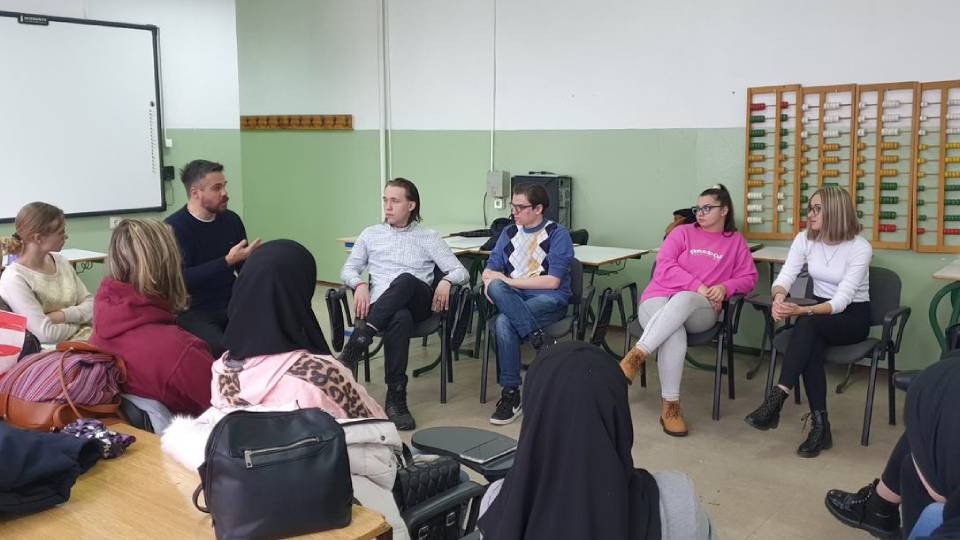Dec 2021
SOCRATES CAFES ZENICA - CAN THE FIGHT FOR GENDER EQUALITY OVERCOME GENDER STEREOTYPES?
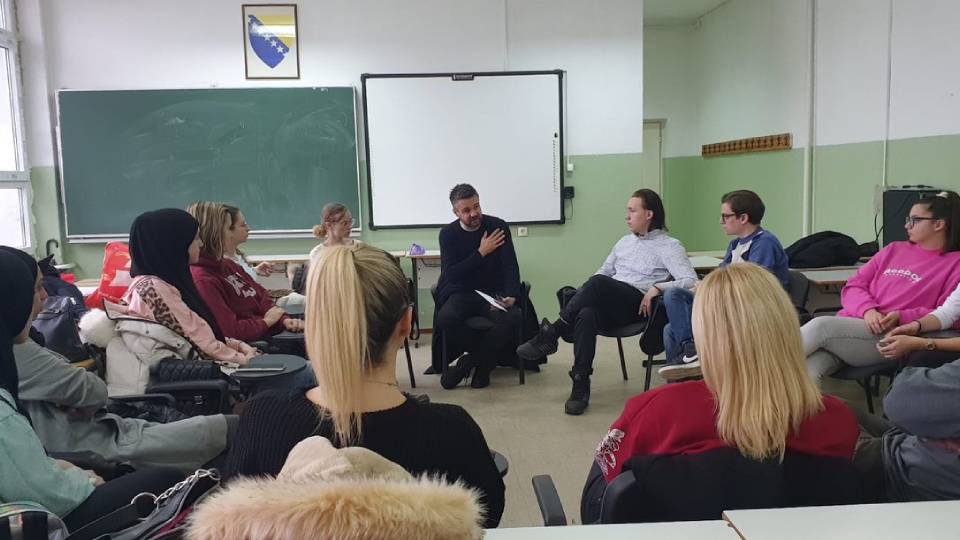
The second debate discussion within this year's program "Socrates' Cafes" was held at the Faculty of Philosophy in Zenica on Friday, December 3. This interesting form of thematic discussions, as part of regular program-teaching activities, is organized this academic year by the Cultural Studies of the University of Zenica in cooperation with partners from the Sarajevo TPO Foundation. "Socrates Cafes" is designed as a space for free exchange of views on topics directly related to youth in Bosnia and Herzegovina.
In the last edition of this debate workshop, students from all years of the first cycle of Cultural Studies discussed the topic Can the fight for gender equality overcome gender stereotypes? The keynote speaker was also moderated by Dr. Hazim Begagić, Assistant Professor at the Department of Cultural Studies. It is interesting that this discussion took place during the international campaign "16 Days of Activism against Gender-Based Violence", which is celebrated every year from November 25 to December 10 and in which Bosnia and Herzegovina and its organizations have been actively participating for a long time.
During the discussion, the participants in the debate workshop opened some of the most important questions in the field of gender equality, trying to offer answers to some of them: To what extent are gender stereotypes imposed on us and instilled through the processes of upbringing and growing up? Can we fight stereotypes with ubiquitous patriarchal norms? What is the position of women in the business environment in Bosnia and Herzegovina? society? What is the attitude towards women in management and decision-making positions? How important is gender-inclusive language and how important is it in the fight for gender equality? In addition to the mentioned issues and topics, the participants of the discussion also discussed the perception of the feminist movement, ie the position and influence of feminist activists in the Bosnian community. During the discussion, the students gave several examples from life situations in which they personally found themselves, in which they felt exposed to a certain form of discrimination or inappropriate reactions and attitudes only because they are women.
After an interesting, exciting and constructive discussion, the students came to the conclusion that the fight for gender equality is an extremely important and long-lasting social process in which everyone should be involved, not just feminist activists or only women. Although significant strides have been made in recent history towards women's gender equality, numerous misogynistic and macho practices are still present in both the private and public spheres. Such a picture is primarily the result of the still ingrained patriarchal tradition and conservative environment. The fight for gender equality is part of a general commitment to a better and more open society in which there will be no unequal treatment or discrimination of groups or individuals. The students pointed out that the institutions of the educational system should play a particularly important role in these processes, with a special emphasis on the involvement of the academic community. During the debate, the participants stated that gender stereotypes will weaken only to the extent that true gender equality is established in society and an atmosphere in which everyone will have space to realize their full individual potential.





















